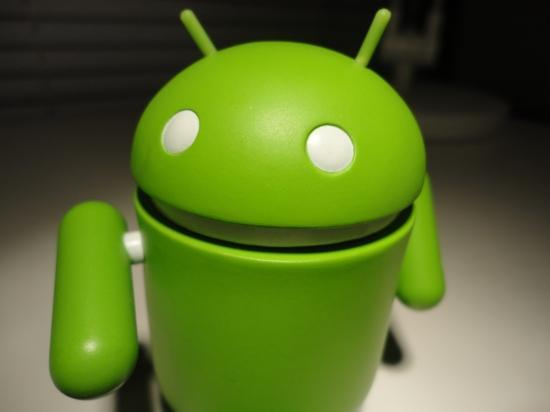

Android has been put through the wringer and faced some pretty major changes over the course of three years. It landed in consumers hands at version 1.0; and shortly thereafter it was updated to Cupcake (1.5), followed by Donut (1.6) and Eclair (2.0 and 2.1). Now the majority of users are on Froyo (2.2) or Gingerbread (2.3), while tablet owners are running Honeycomb (3.0 through 3.2).
Despite their appetizing nicknames, most of these updates have been pretty drastic. The user interface has experienced a nice upgrade, in which it has been seriously polished since version one, and we've seen major upgrades in memory optimization, multi-core support and power management. Of course, it doesn't stop there. Hardware is quickly advancing and the smartphone is evolving; Google is working around the clock to churn out their next OS version, which is to be named Ice Cream Sandwich (is this it?), and likely to be version number 4.0.
We've been told many times now that ICS will be a major upgrade and will likely be the update that will consolidate tablet and smartphone software – the two split at Gingerbread and Honeycomb, creating yet another type of fragmentation. Other than that, what will be included in the ICS update is a complete mystery. Taylor Wimberly of Android and Me listed 13 things that he believes we will see in the update:
- The fusion of tablet and phone software
- A new UI and buttonless hardware
- Open source (Honeycomb's source was never released)
- Version number 4.0
- Linux 3.0 kernel
- Music purchases in Market
- More support for multi-core architectures
- More speed/better performance
- Google TV and Chrome OS integration
- Built-in theme engine
- Better gaming platform (think iOS Game Center)
- Backwards compatibility
- “New camera tricks.”
Most of this I can agree with as we've seen some sort of evidence for it all in the past. But none of this, aside from the obvious, is really major. Things like theme engines, game ranking systems, buttonless phones and music purchases have been around or have been talked about for a long time. They're nice features and I'll be looking forward to them, but they're nothing imperative to the platform's success.
Today we learned that “Jelly Bean” is in the running for the next delicious moniker. This is my next also added that some of the “game-changing” features of the ICS update are now being pushed back to Jelly Bean (or whatever it ends up being named). This is likely a result of Google bumping the release of Ice Cream Sandwich forward to counter the iPhone 5 launch with the Samsung Nexus Prime. But I digress … what could these “game-changing” features be? And does this make ICS any less exciting?
I have a feeling that Ice Cream Sandwich, due to time constraints, will be trimmed down to the "essentials" of the update. We know that it will sport a different UI and that phones will inherit many of the tablet-based UI components possibly widgets, a similar app drawer or the "add a widget" function from 3.0. And Google's biggest vehicle for ICS has been the fight against fragmentation. It's a fairly safe bet that these two portions of the update will not be split apart or put off until the next update. But the lighter features like Google TV integration and maybe even the theme engine could be set aside for more important features.
I still believe, however, that the update will be "major." Full support for multi-core chipsets was introduced in Honeycomb, but as Wimberly explains, Gingerbread "was not designed from the ground up to be fully optimized." This update will bring full support for multi-core architectures to phones and will dramatically improve performance. Pairing this with a UI overhaul and likely extra boosts in memory and power management is enough to deem this update "major." Anything else is just icing on the cake.
So what does that leave for Jelly Bean? Well, it's obviously hard to say, but I do have a few ideas. Google desperately needs an ecosystem for their devices. And as Wimberly suggests we might see Google TV and Chrome OS integration in ICS; I do not think it will make the cut just yet. But we know that Google is pushing NFC rather strongly in gaming and their tablet-to-phone media transfers. Jelly Bean could be the introduction for some sort of "Google products ecosystem" through use of NFC and cloud – something like a multi-directional Chrome to Phone for transferring music, pictures, bookmarks, etc.
The other thing I can only hope they introduce is better multitasking for tablets. I know it's a stretch and it probably won't happen without the aid of a third-party developer, but running mini apps (from smartphone framework, which is already embedded) atop the tablet UI would give Android true simultaneous multitasking built-in. Not enabling this function is just blatantly missing an opportunity for a strong marketing feautre and extra functionality out of tablets.
It's tought to say exactly what to expect. The term "game-changing" and the fact that some of these bigger features are being pushed back makes be believe that Google has something truly unique up their sleeve and they want to perfect it before launching it. Launching something entirely new and not getting it right the first go 'round gives competitors the opportunity to build on the idea and possibly one-up Google. Sadly enough, it wouldn't be the first time we've seen someone copy another in the mobile market. And I figure Google has learned their lesson.
What say you, laides and gents? What are the "game-changing" features we will see in Ice Cream Sandwich and Jelly Bean? Speculate away, my little Androidians!
- Log in to post comments
